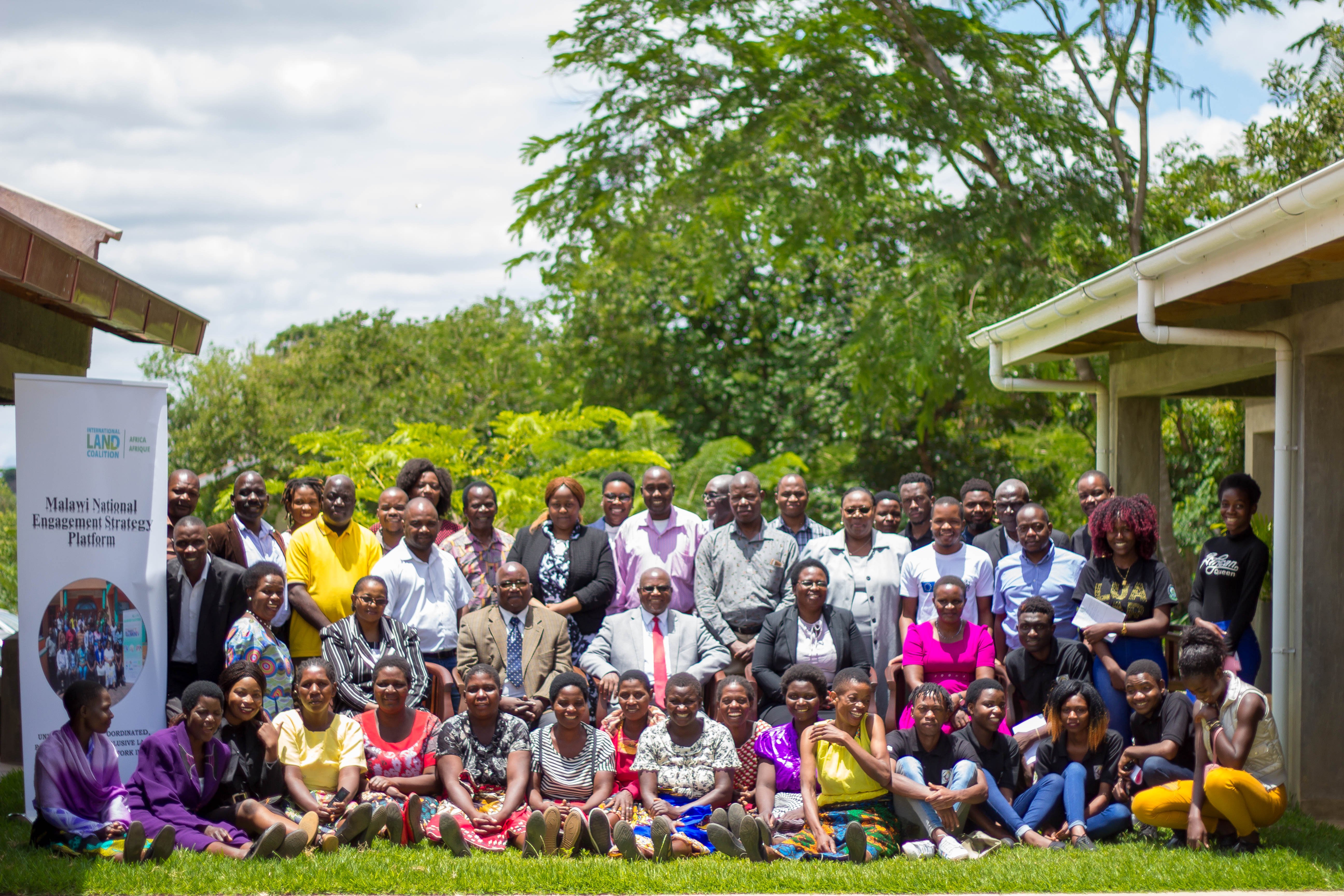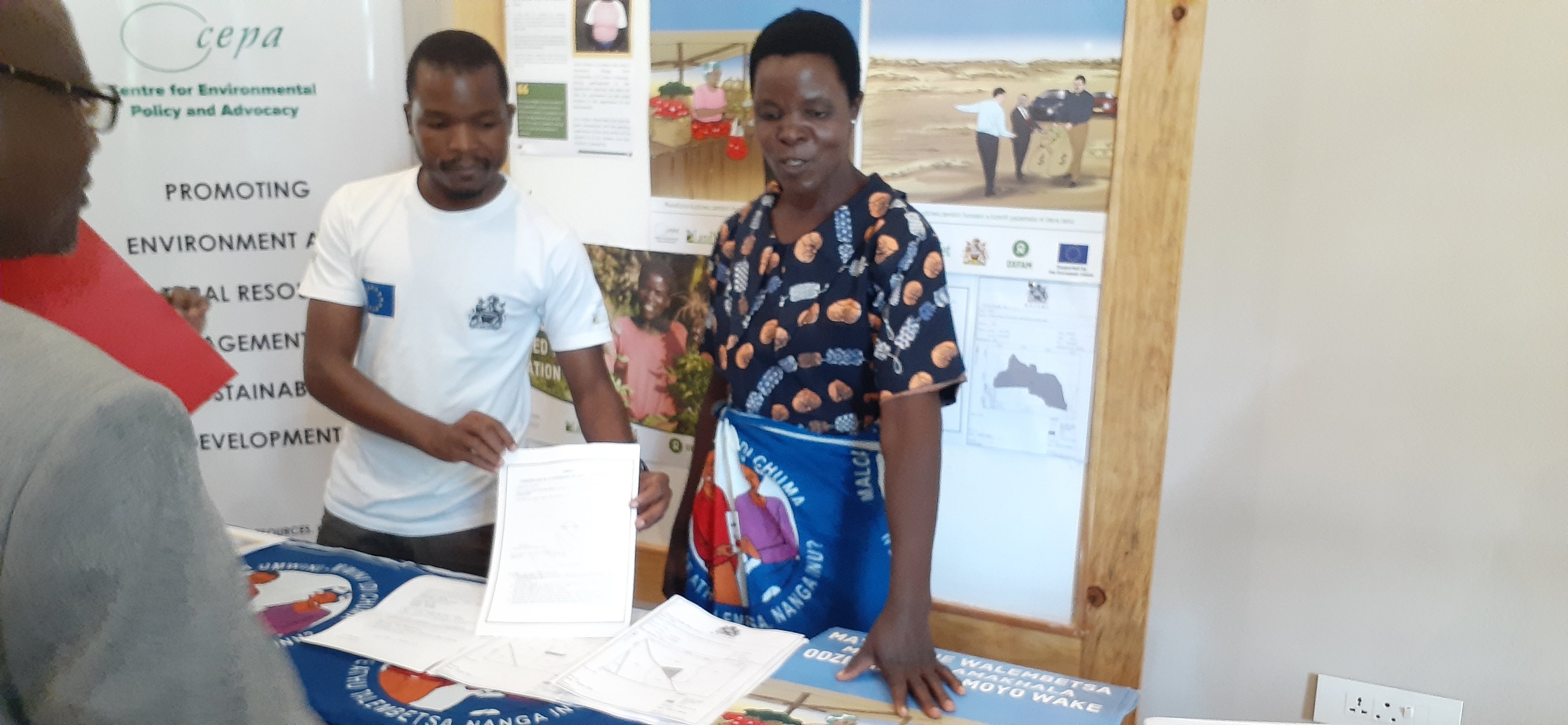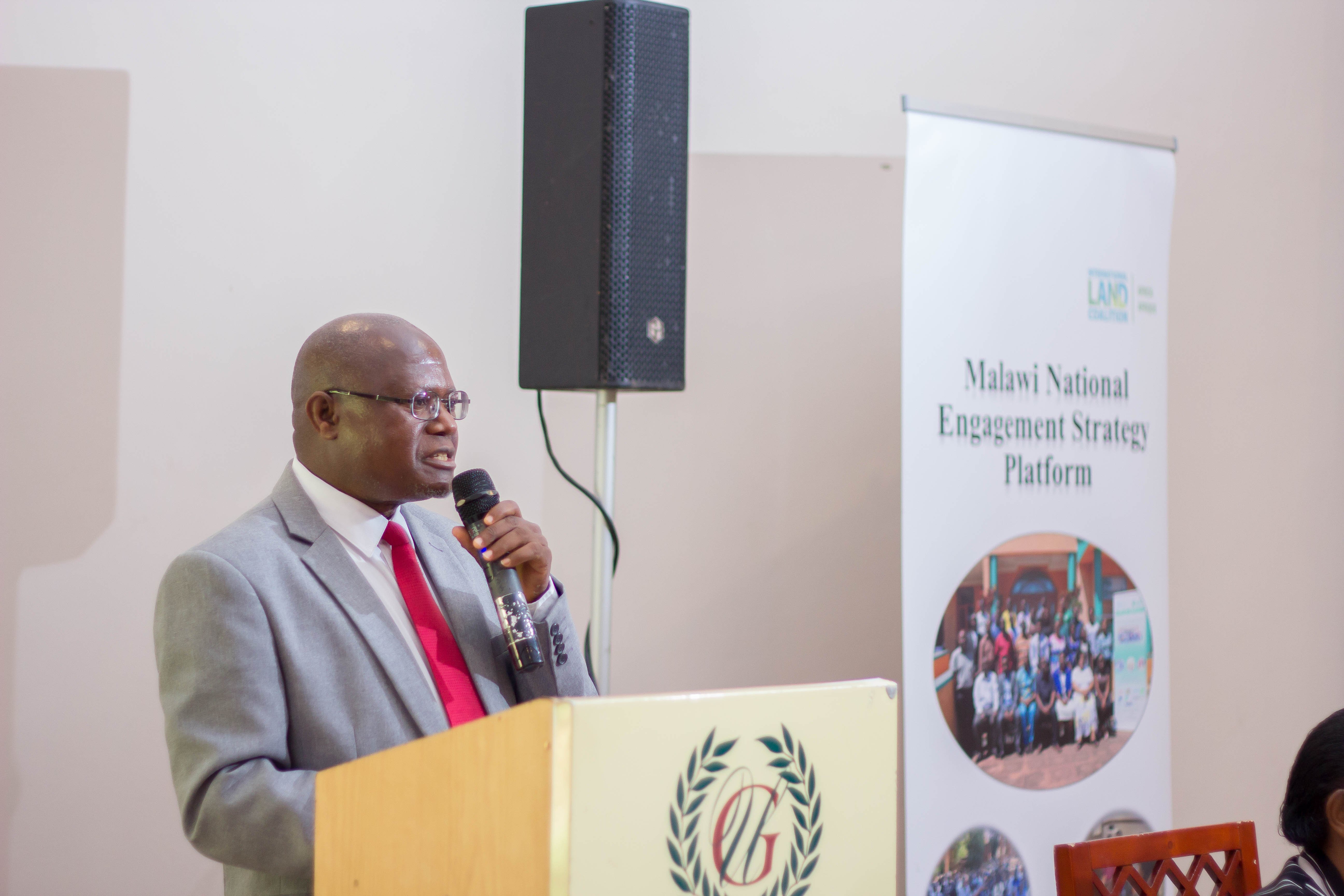Launch of the National Land Coalition Third Triennium Strategy
The 6th of March 2020, brought in a new wave of change within the Malawi National Land Coalition(formerly the Malawi National Engagement Strategy Platform). The coalition inaugurated the implementation of its third triennium Country Strategy with a launch that convened actors from government, development agencies, civil society organizations and the community to bear witness to the momentous event and rally behind the collective and mutual goal of people centered land governance in Malawi.

To grasp the gravity of the occasion is to take a step back to the advent of the platform and understand retrospectively where the platform is coming from and look ahead to the future it has oriented towards.
The Platform was formulated between the years of 2013 and 2014 in Malawi. The formulation of the platform was necessitated by the divergent views expressed by civil society actors into the then process of shaping 10 land related bills. This divergence yielded little into ensuring that these numerous but valid concerns by the civil society were incorporated into the drafting of the bills. LandNet Malawi, a network of like-minded organizations working on land governance issues in the country was then tasked with coordinating CSOs for joint submission into the bills formulation by both government and the Civil Society. With financial and technical support from the International Land Coalition (ILC), LandNet was able to do so through the establishment of the NES process in Malawi.
Since its inception the platform had served as a space for collective advocacy and awareness for the enactment of the 10 land related bills in Malawi. Among its key success are the following:
- Coordinating and unifying the voices among civil society on the land question and thus substantially contributing towards the enactment of the new land laws in Malawi
- Inclusion of women in the land reform process through the Kilimanjaro initiative
- NES representation in the multi-sectoral National Land Governance Technical Working Group hosted by Ministry of Lands
- Increased awareness of the principles VGGT, RAI, RTF, FPIC and AU Frameworks and Guidelines
- Inclusion of traditional chiefs in the NES process
- Successfully hosted a multi-sectoral land symposium whose recommendations will inform the implementation of the new land laws.
The achievements of the NES in this period could not be understated and its instrumentality overlooked. However, with the enactment of the long anticipated land bills in between 2016 and 2017, the platform also underwent an introspection of its operations. As the land governance sphere transitioned at a national scale, how suited was the platform to remain relevant in influencing not only legislating of people-centered land laws but also their implementation.
In 2019, a decision was made to restructure that platform so as to ensure its evolution within the development agenda of the nation as far as land governance is concerned. Largely the changes in legal framework could be summarized in the form of inclusivity, increased participation and decentralization of land governance functions.

Members Pavilion exhibits: On of the first women land certificate holders displays her certificate. Obtained under a project by a Consortium of Platform members, LandNet, CEPA and Oxfam
The NES a then civil society only platform responded in turn by pursuing greater representation from other key stakeholders such as government ministries, statutory bodies, developmental agencies, grassroots organizations and the academia. In doing so, membership was enriched in diversity of expertise, background, scope and geographical coverage as well. In doing so, the platform could leverage on all this and also provide a truly multi-stakeholder space for dialogue, and joint action that fosters successful implementation of the Land Acts (2016) from complimentary efforts.
Therefore the Strategy launched on this day, signaled a new day in the facilitation of holistic and multi-stakeholder dialogue in land governance as the strategy represented the culmination of various views by various stakeholders sharing the same goal of inclusive, participatory and non-discriminatory implementation of Malawi's progressive Land Acts aiming at equal land rights for all.

Mr. Duncane Chione, Giving the Guest of Honor Speech, representing the Minister of Lands during the Launch.
*A copy the strategy can be found in our downloads section.